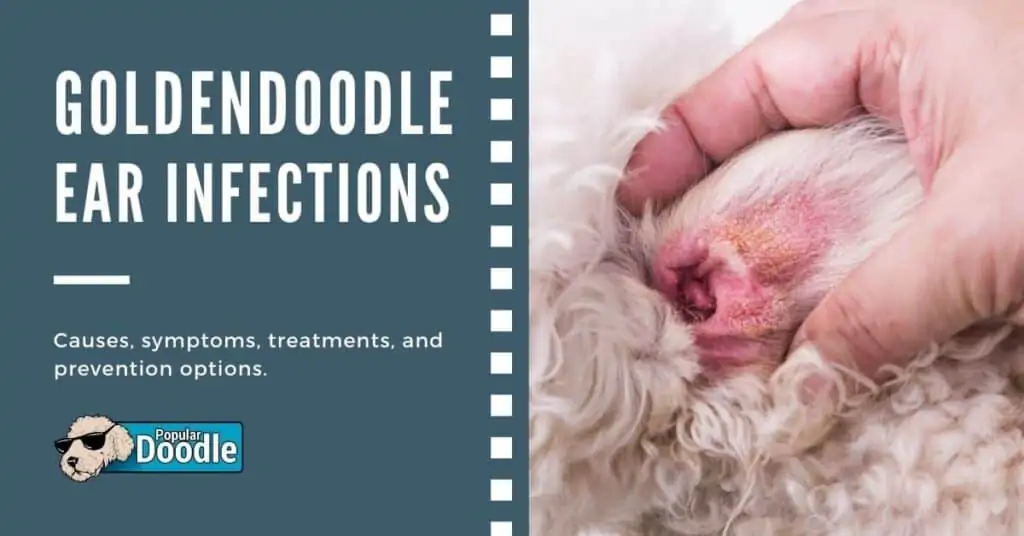By Dr. Merliza Cabriles, D.V.M.

Witnessing your Maltipoo shaking uncontrollably can be very distressing—even more so if it’s the first time it’s happened!
Maltipoo shaking can occur due to your dog simply being cold or anxious. However, severe shaking is also a symptom of potential medical issues such as congenital disease, shaker syndrome, toxins, medication reactions, and epilepsy.
Read on to help determine what may be causing your Maltipoo to shake, what you can do about it, and at what point it makes sense to get your veterinarian involved.
Causes of Maltipoo Shaking
Some shaking is to be expected if your Maltipoo is cold or scared. However, if the shaking is particularly extreme or prolonged, it could be caused by a more severe health condition.
Read More: Maltipoo Health Issues: 9 Common Maltipoo Health Problems to Look Out For!
Here are a few of the most common health conditions that could be causing your Maltipoo to shake…
Congenital Disease
Congenital Disease is when problems affect the structure and function of the central nervous system, such as cerebellar hypoplasia. This health issue can cause tremors that manifest early in life.
Shaker Syndrome
Shaker syndrome in Maltipoos (also known as “idiopathic steroid-responsive shaker syndrome” or “shaker dog syndrome”) is a condition that involves generalized head and body tremors.
While any dog breed is susceptible to the condition, cases are higher in dogs that weigh less than 30 pounds such as the Maltese, Poodle, and Maltipoo. This condition is often called “Little White Shaker Syndrome” in these breeds.
Many experts often view Shaker Syndrome as congenital for Maltipoos because of the predisposition of both parents’ breeds to the condition. Both the Maltese and Poodle can have white hair coats and are among the dog breeds that are known to have higher risks of being affected by shaker syndrome.
The cause of shaker syndrome in dogs has not been fully established. Experts have considered several theories, but scientific investigations don’t sufficiently support any of them so far. Many experts think that cases are autoimmune in origin because affected dogs respond to corticosteroid administration.
Shaker syndrome is also called ‘generalized tremor syndrome’ (GTS).
Ingestion of Toxins
Ingestion of toxic chemicals such as organophosphates, bromethalin, and hexachlorophene can result in tremors. This is also true with ingesting poisonous mushrooms, xylitol, snail baits, chocolate, and nicotine.
Medication-Induced Shaking
Some medications, such as certain flea and tick medications or psychotropic medications, may trigger body tremors and seizures in hypersensitive Maltipoos.
A dog recovering from anesthesia after a surgical or dental procedure may also experience body tremors.
Encephalitis
Body tremors may be one of the symptoms manifested in Maltipoos with encephalitis caused by bacterial or viral infections. The most common infections in which tremors may be exhibited include canine distemper virus, parvovirus, adenovirus, and tick-borne diseases.
Idiopathic Cerebellitis
The inflammation of the cerebellum, a portion of the brain responsible for the coordination and regulation of voluntary muscles, may also lead to body tremors. It’s termed ‘idiopathic’ because the reason for the inflammation is unknown.
Seizure Disorder
A dog with a seizure-related condition or epilepsy can exhibit tremors ranging from mild to whole-body tremors.
Hypoglycemia
When blood glucose falls below normal levels, an affected Maltipoo often exhibits neurological signs. These include muscle tremors, seizures, and twitching.
These neurological signs are attributed to the brain’s poor tolerance for hypoglycemia. Glucose is the brain’s predominant energy currency, without which the brain cannot function, leading to a cascade of severe, life-threatening issues.
Other Medical Conditions
Certain medical conditions can also trigger shaking or tremors in Maltipoos. These include the following:
- Hypoadrenocorticism, or Addison’s Disease, is a hormonal disorder that can cause vomiting, lethargy, and shaking in affected dogs.
- Hypocalcemia (low blood calcium concentration) can cause muscle trembling and seizures.
- The pain and discomfort brought on by arthritis of the front or back legs can cause trembling in senior Maltipoos.
Physiological and Physical Conditions
Physiological and physical causes should not be ruled out when it comes to Maltipoo shaking. It’s normal for your pet to shake when scared, cold, excited, or exhausted.
When it’s very cold, shivering helps with thermoregulation.
Dogs instinctively try their best to conceal any signs of pain. If your Maltipoo may be in pain, instead of vocalizing, they may try to endure it as long as he can, and the only visible indication that your pet is in pain is the trembling of the body.
Fear is part of the fight-or-flight response of dogs. It’s a deeply ingrained instinct that is necessary for survival. Experiencing fear, stress, and anxiety can trigger the release of fight or flight hormones, cortisol, and adrenaline, in your dog’s body.
When there is a threat, real or perceived, the fear response triggers a cascade of reactions throughout the body that can cause shaking and a host of other symptoms.
Maltipoo shaking could also be brought on by motion sickness, overeating, kidney disease, or liver disease.
What to Do If Your Maltipoo Won’t Stop Shaking
The duration of body shaking and trembling generally varies from dog to dog. If it’s shaker syndrome, the most common symptoms that are exhibited include the following:
- Rhythmic and repetitive tremors.
- Body shaking may occur on any part of the body, or it may be full-body shaking.
- Shaking can range from very mild to very severe. Your Maltipoo will have trouble walking when experiencing a severe episode of shaking.
- The tremors may worsen over a period of 3 days, and for the following days, weeks, or months, the tremors may remain with the same severity until appropriate treatment is given. The tremors may worsen with physical activity, stress, excitement, traveling, or being handled.
- The frequency and intensity of the tremors may temporarily diminish when your Maltipoo is resting or sleeping.
- Uncontrolled eye movements.
- Head-tilting.
You should assess the overall situation if your Maltipoo starts shaking and trembling. Keep a close eye on your pet’s behavior, appetite, activity level, and other symptoms that may be present.
Try to identify the possible cause of your pet’s behavior. Could it be something that your Maltipoo has recently eaten? Was there a loud noise that triggered your dog’s shaking? Did you recently give any medication?
If your Maltipoo’s shaking is relatively benign, such as the cold weather, excitement, or noise phobia, take measures to address the underlying issue and make your dog feel safe and comfortable.
However, if your efforts to keep your Maltipoo warm and remove potential stressors from your pet’s immediate environment don’t work, it’s time to have your pet examined by your veterinarian.
While there are many less severe reasons for Maltipoo shaking, the possibility that your dog could be exhibiting the behavior due to a more serious underlying cause does exist.
Have a question for a vet? Click here to live chat instantly with a verified veterinarian!
When To See a Vet About Your Maltipoo Shaking
If your dog has never experienced this before and other symptoms accompany the shaking, you should make an appointment with your veterinarian as soon as possible.
This is especially true if your Maltipoo is showing other symptoms such as:
- Diarrhea
- Vomiting
- Panting
- Lethargy
- Limping
- Drooling
- Signs of Distress and Anxiety
Your Maltipoo may need a full veterinary workup, including bloodwork and other tests. The more quickly your pet is assessed, the higher the chances of a better prognosis.
If Maltipoo shaking is triggered by loud noise or other phobias, you should make an appointment with a veterinary behaviorist or certified animal behaviorist. But before doing so, it’s highly recommended that you first seek veterinary attention for your Maltipoo to rule out any potential health issues.
Your veterinarian will refer you to an animal behaviorist if it’s not a medical condition causing your pet’s shaking.

Dr. Merliza Cabriles, D.V.M.
Contributing Professional
Dr. Merliza Cabriles is a licensed veterinarian and university professor with many years of experience in food animal and pet companion medicine. Her passion for writing as well as pet parent education and support is echoed in the articles and ebooks she has written.








